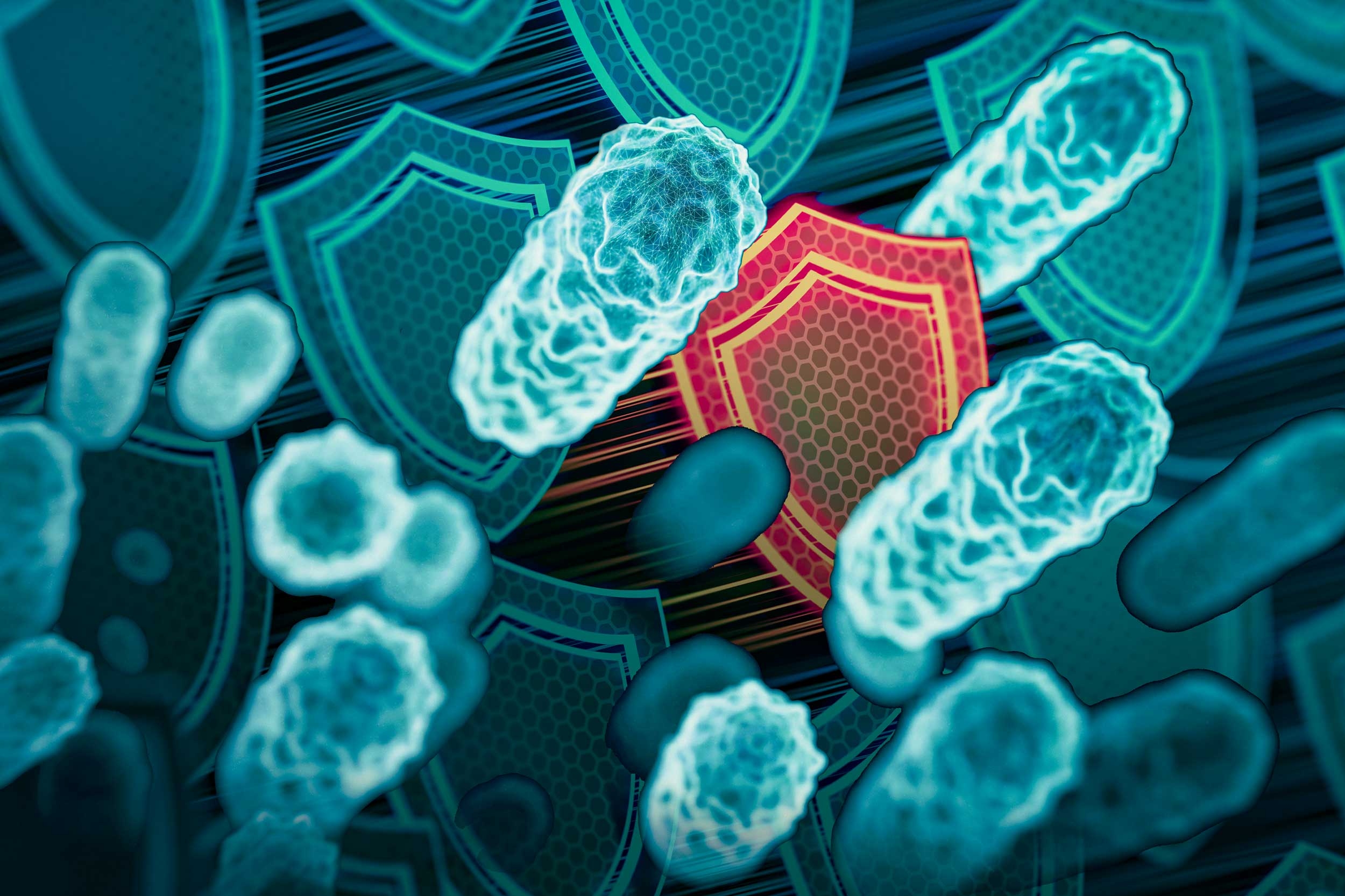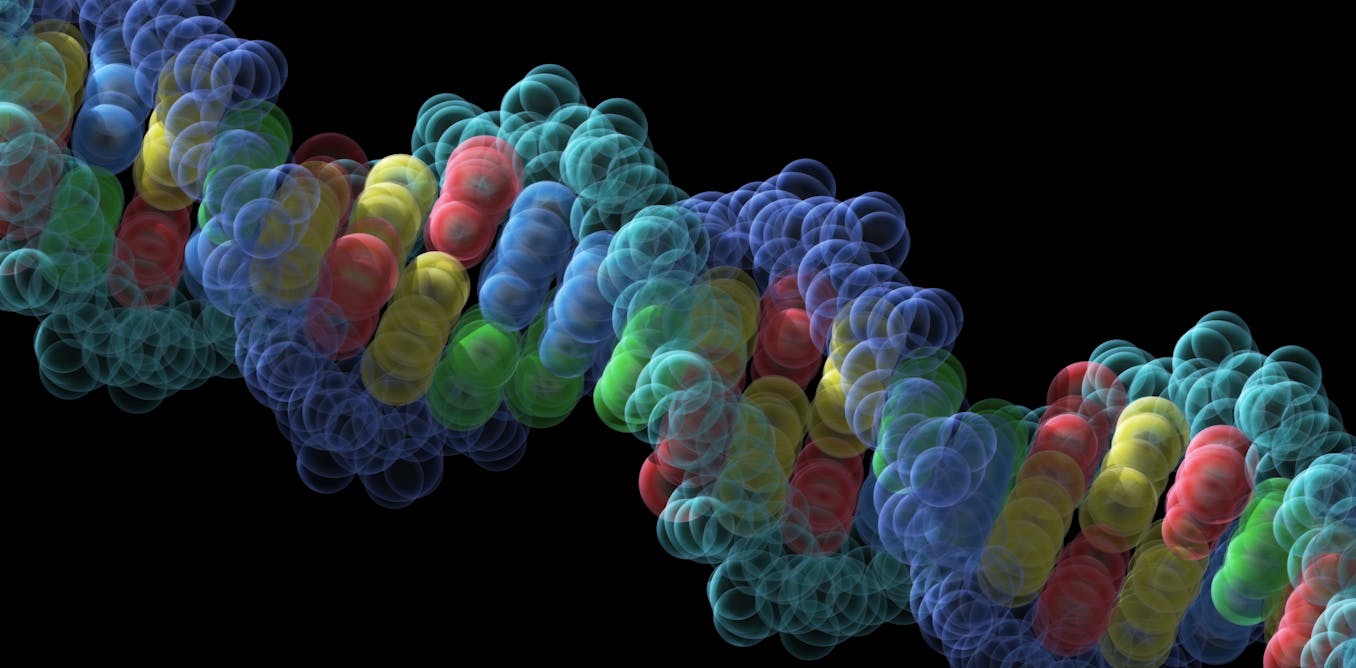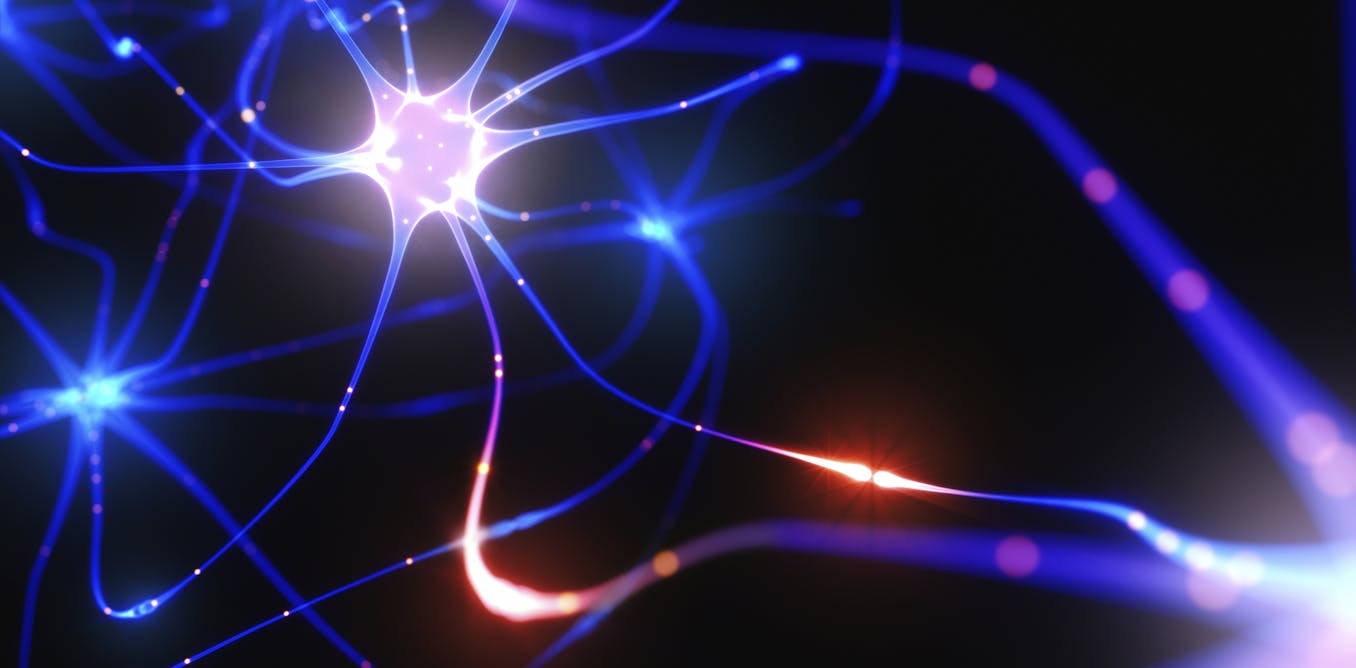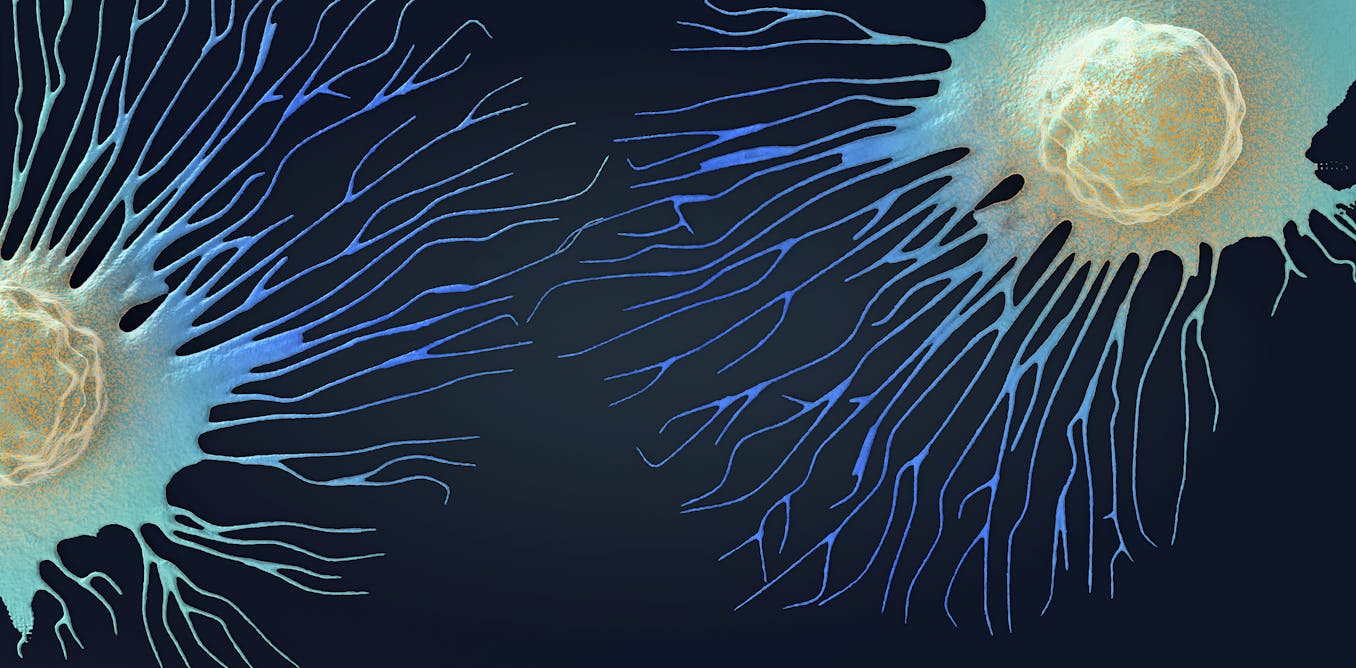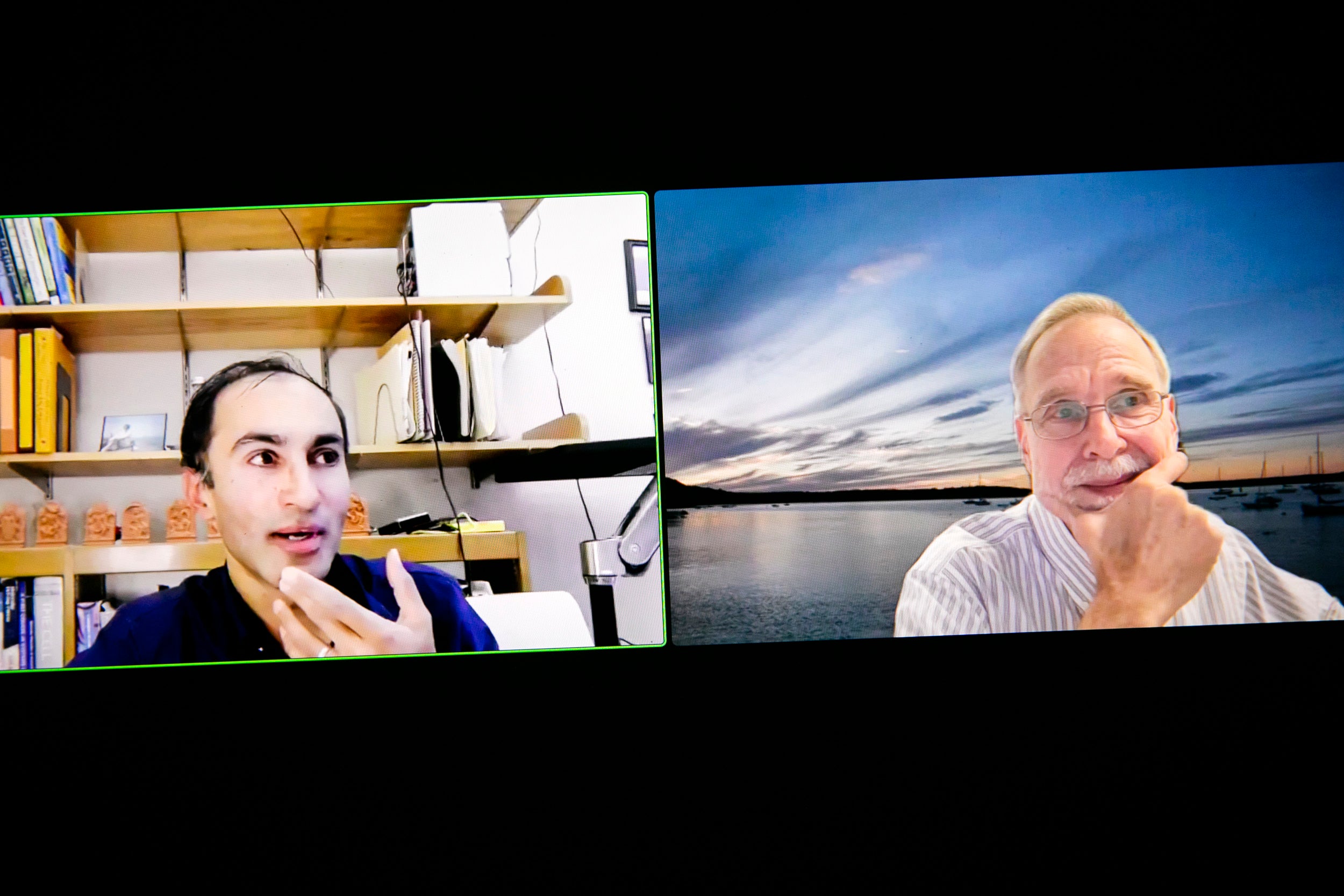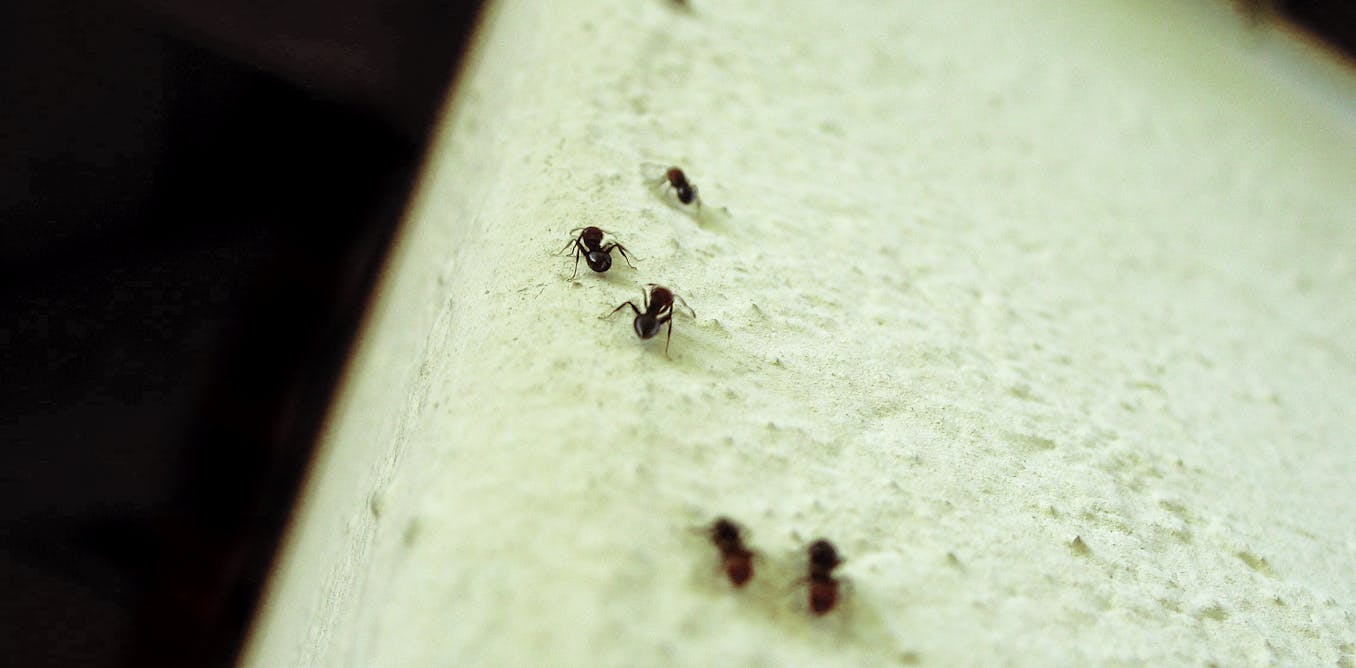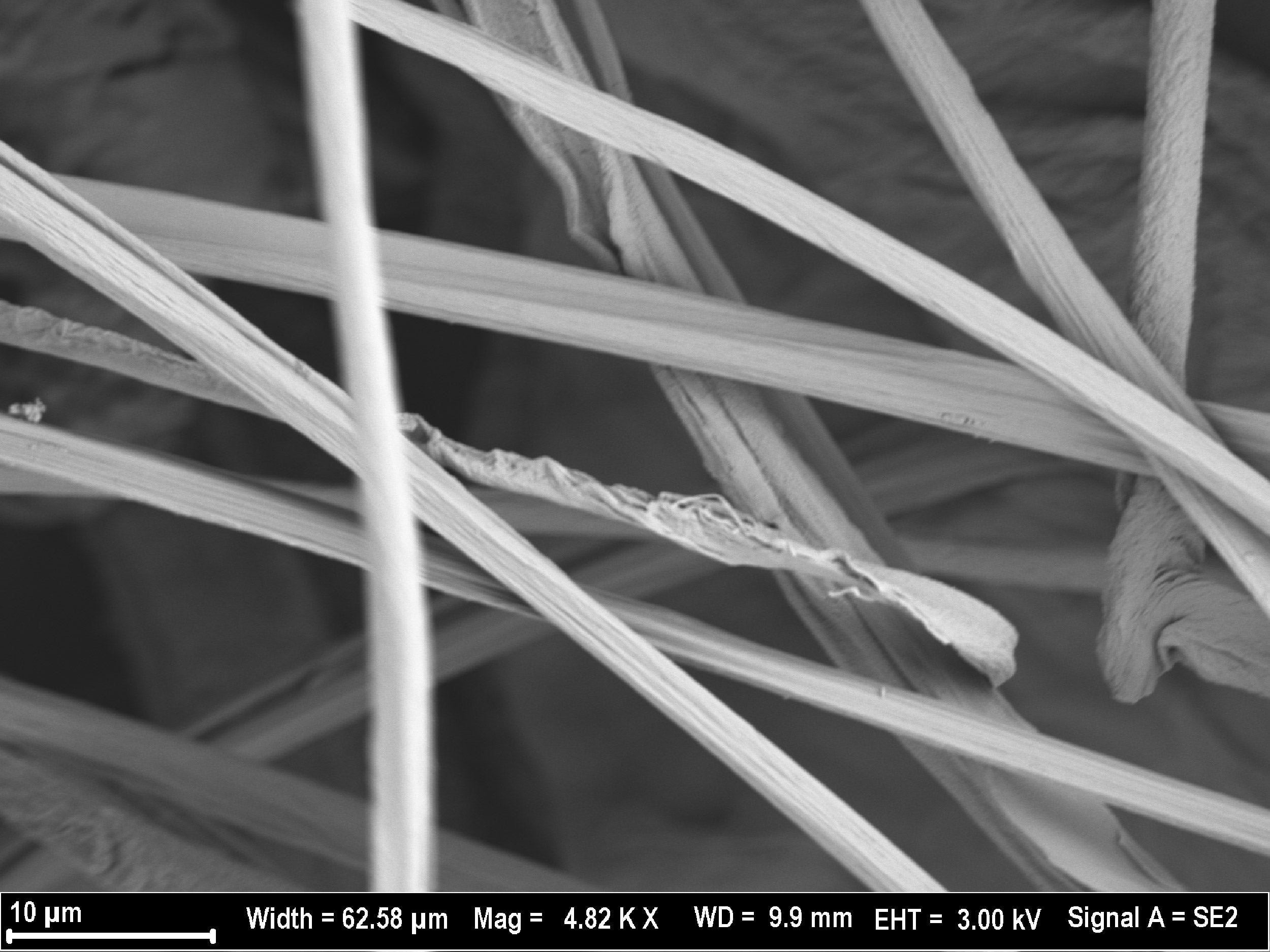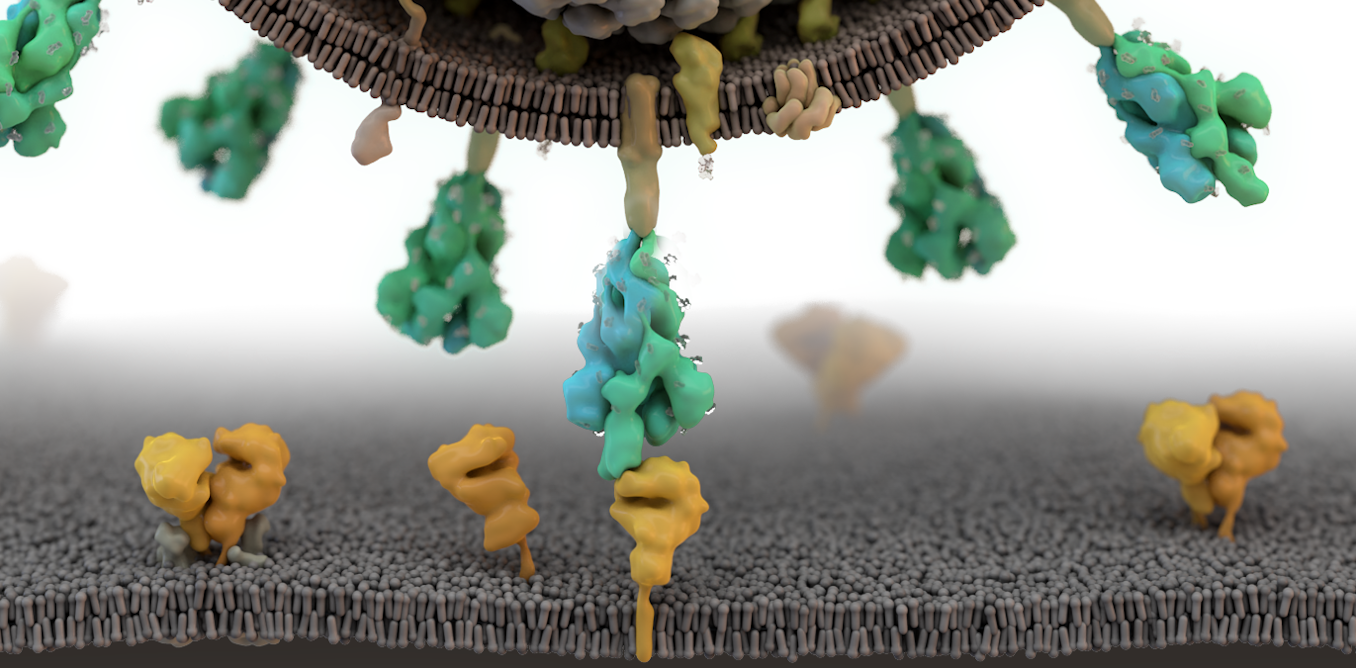Quantum physics proposes a new way to study biology – and the results could revolutionize our understanding of how life works
Studying the brief and tiny quantum effects that drive living systems could one day lead to new approaches to treatments and technologies.
May 15, 2023 • ~9 min
Memories may be stored in the membranes of your neurons
Pinpointing where memories are stored in the brain and how they are transmitted could provide new targets to treat neurological diseases and serve as models for neuromorphic computing.
May 9, 2023 • ~5 min
How cancer cells move and metastasize is influenced by the fluids surrounding them – understanding how tumors migrate can help stop their spread
Counterintuitively, cells move faster in thicker fluids. New research on breast cancer cells explains why, and reveals the role that fluid viscosity plays in metastasis.
Jan. 9, 2023 • ~7 min
Why elephants have bigger bones and other mysteries of biophysics
During a virtual Harvard Science Book Talk, Raghuveer Parthasarathy examines the mysteries covered in his new book, “So Simple a Beginning: How Four Physical Principles Shape Our Living World.”
Dec. 2, 2022 • ~6 min
How do ants crawl on walls? A biologist explains their sticky, spiky, gravity-defying grip
Ant feet are equipped with an array of tools – from retractable sticky pads to claws to special spines and hairs – enabling them to defy gravity and grip virtually any surface.
Sept. 12, 2022 • ~6 min
Electric eels inspired the first battery two centuries ago and now point a way to future battery technologies
One species of eel can discharge 860 volts of electricity – that’s 200-fold higher than the top voltage of a single lithium-ion battery.
May 9, 2022 • ~9 min
New nanofiber protects against extreme temperatures, projectiles
Harvard University researchers, in collaboration with the U.S. Army Combat Capabilities Development Command Soldier Center and West Point, have developed a lightweight, multifunctional nanofiber material that can protect wearers from both extreme temperatures and ballistic threats.
June 29, 2020 • ~8 min
Scientists tap the world's most powerful computers in the race to understand and stop the coronavirus
Scanning through billions of chemicals to find a few potential drugs for treating COVID-19 requires computers that harness together thousands of processors.
June 3, 2020 • ~9 min
Study finds unexpected long-range particle interactions | MIT News
Spinning cells could attract each other across surprisingly long distances.
April 11, 2016 • ~6 min
/
2

